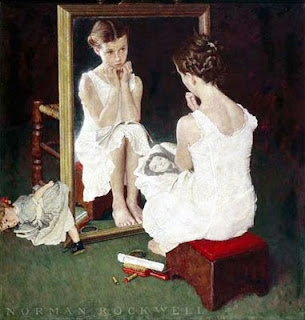All these performances pose dilemmas that require different pedagogical strategies intervention, inclusion and celebration, deconstruction. and transformation: how to speak the feminine but not femininity, engage race without being racist, claim yet qualify women's work, transform without silencing. (Bell & Golombisky, pp. 323)
I remember interviewing Justin Trudeau for 5080 last semester; I probed him about the concept of performance as understood by our department. He gave an explanation that has worked before, but my eyes glazed over. References to gender just made this a more perplexing struggle over meaning.
My boyfriend Drew came home with me for Thanksgiving this year. My stepmother inconspicuously woke us up this morning with the banging of pots and pans (The kitchen was spotless last night before bed). After two days... I can't (we have a hotel booked for the next two nights), so we held out- scanning Facebook. Drew paused my scrolling on Black Friday, a Steely Dan single.
"This was posted by Johny W. You met him yesterday."
He laughed, "Everyone looks the same here. The same height, the same clothes..."
He's not wrong.
There aren't a ton of scripts to choose from, and it's not for lack of imagination. I can dig performance as a statement or art form, but in Springfield performance is better conceptualized as "the action or process of carrying out or accomplishing an action, task, or function"(google)... like a Ford Commercial. We want the upper middle material possessions, happy families, and trips to church every Sunday. If we need a new deck, we learn to build one. If we aren't getting along, we book a hotel. We have an extra cup of coffee some Sunday mornings.
In a restrictive pedagogical atmosphere, cultural practices and student struggles over meaning do not intersect. The common problem of stifled consciousness or uncritical exploration of everyday discourses is the epicenter of restrictive pedagogy. (Hendrix, Jackson & Warren, pp. 182)
What is difficult to confront, is that this way of life benefits from restrictive pedagogy. You are given a task, and you figure it out. You CAN, you may just have to work harder, or be smarter, kinder, more common... It is not that inequalities don't exist, but thinking about them is too painful. Anger is consuming, and performance evaluations take conditions into account, at least that's what the Bible says... sometimes.
Another word I'm not sure of is double-bind, but I think that this is what's happening here. You are too busy responding to inequity to be bothered to intervene. We accept the hand we are dealt because it could be worse, our meanings and values do resemble dominant ones, and when we do succeed we get to bask in the glow of ego and false charity (Freire, 1970). When we don't, we obediently scapegoat our mechanical defects. Confidence stifled. Mission accomplished patriarchy.
It is precisely an individual’s experience in tandem with the human capacity to coproduce one’s environment that complicates and ignites the possibilities for a critical progressive pedagogy. (Hendrix, Jackson & Warren, pp. 181)
One cool thing about performance, art or science, is it's ability to create some distance. The human capacity to create is something we share, and this makes our differences and weaknesses more accessible to critique... and hope. It makes since now why performance comes before power and hegemony in our 1010 schedule, and I'm excited to give it a try. I think this could be especially helpful in my class from hell. You've never seen so many good(and smart) girls.
 |
| Norman Rockwell's "Girl at the Mirror" 1954 |
Performance definitions always make me eyes glaze over. I am always so intrigued by the shows members of our department put on but once they start to talk performance jargon I feel like a complete imposter. However, the theories surrounding everyday performances are some of my favorite. I think it is great that you apply these performance theories to the roles your family members perform. As I read, double-bind was one of the words that stuck with me. A book I read for Megan’s Citizenship and belonging course talked in depth about the ways discussing diversity or inequalities becomes all-consuming and before we know it we are not actually intervening. I think we need to focus more on the doing of creating inequality and I want to work that into my language, culture, and power lesson plan. I how all goes well in your class from hell! I know you’ll do great!
ReplyDelete